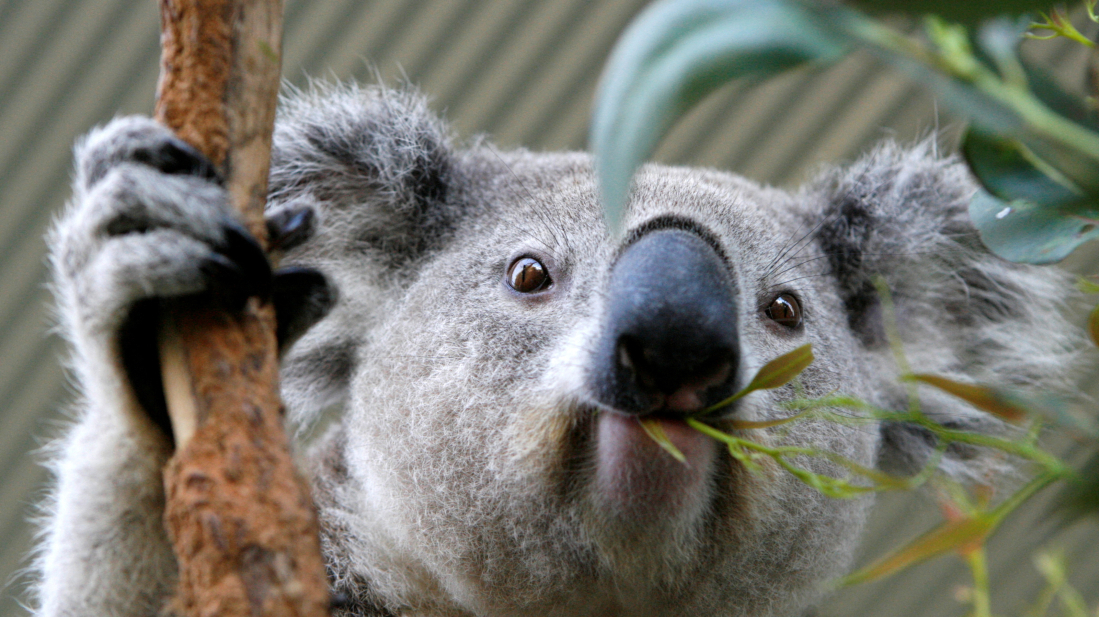The White House: U.S. ground troops ‘not part of plan’ in Iran
The White House says deploying United States ground troops in Iran is not currently part of the military strategy in ...

A vaccine to protect Australia's koalas against chlamydia has been approved for the first time, a development that scientists believe could stop the spread of the deadly disease that has ravaged populations of the beloved endangered animal.
"Some individual colonies are edging closer to local extinction every day," Peter Timms, professor of microbiology at the University of the Sunshine Coast said in a statement on Wednesday.
Chlamydia spreads through mating and birth in koalas, causing infertility, blindness, and severe infections that leave them too weak to climb for food.
In some populations in the states of Queensland and New South Wales, infection rates are often around 50% and sometimes as high as 70%, Timms said.
The vaccine could reduce the likelihood of koalas developing symptoms of chlamydia during breeding age and cut mortality among wild koalas by at least 65%.
"It offers three levels of protection - reducing infection, preventing progression to clinical disease and, in some cases, reversing existing symptoms," he said.
Development of the vaccine has been supported by AU$749,000 ($495,000) from the government's AU$76 million ($49.9 million) fund to save koalas. Much of the rest of the fund has been allocated to large habitat restoration projects and the national monitoring programme.
Koalas were listed as endangered in 2022 in Queensland, New South Wales and the Australian Capital Territory. Australia's national koala monitoring programme estimates that between 95,000 and 238,000 koalas are left in those areas.
U.S. President Donald Trump said the U.S. military has enough stockpiled weapons to fight wars "forever"; in a social media post late on Monday. The remarks came hours before conflict in Iran and the Middle East entered its fourth day.
U.S. first lady, Melania Trump chaired a UN Security Council meeting on children and education in conflict on Monday (2 March), a move criticised by Iran as hypocritical following U.S. and Israeli strikes that triggered a UN warning about risks to children.
A torpedo from a U.S. submarine sunk an Iranian warship off the coast of Sri Lanka, U.S. Secretary of Defense, Pete Hegseth told reporters as the Iranian conflcit entered its fifth day on Wednesday.
The U.S. embassy in Riyadh was hit by two drones resulting in a limited fire and some material damage, the kingdom's defence ministry said in a post on X on Tuesday, citing an initial assessment.
Shahid Motahari Sub-Speciality Hospital in northern Tehran and parts of the Golestan Palace were bombed on day two of the U.S.‑Israel strikes. AnewZ Touraj Shiralilou is in Iran's capital city and said that the facility was flattened in an airstrike.
The death toll from heavy rains and flooding in Brazil’s Minas Gerais state has risen to 46, authorities said, with 21 people still reported missing. The storms triggered landslides and widespread flooding, displacing thousands across Juiz de Fora and Uba.
The administration of U.S. President Donald Trump on Thursday (12 February) announced the repeal of a scientific finding that greenhouse gas emissions endanger human health, and eliminated federal tailpipe emissions standards for cars and trucks.
Tropical Cyclone Gezani has killed at least 31 people and left four others missing after tearing through eastern Madagascar, the government said on Wednesday, with the island nation’s second-largest city bearing the brunt of the destruction.
Rivers and reservoirs across Spain and Portugal were on the verge of overflowing on Wednesday as a new weather front pounded the Iberian peninsula, compounding damage from last week's Storm Kristin.
Morocco has evacuated more than 100,000 people from four provinces after heavy rainfall triggered flash floods across several northern regions, the Interior Ministry said on Wednesday.
You can download the AnewZ application from Play Store and the App Store.

What is your opinion on this topic?
Leave the first comment